College of Human Sciences
College of Human Sciences leads decoloniality conversations
Unisa’s College of Human Sciences (CHS) hosted a groundbreaking conference that sought to find answers on what de-colonisation and re-Afrikanisation truly mean for South Africa and Africa? Themed De-colonisation and Re-Afrikanisation: A Conversation, leading thinkers such as Argentine semiotician and professor at Duke University, Walter D Mignolo; sangoma, Gogo Dineo Ndlazi; local poet, Ntsiki Mazwai; decoloniality activist Khanyisile Litchfield-Tshabalala; and lecturer, writer and activist-mentor, Baba Buntu presented at the Conference which took place from 6 to 8 August 2018.
The international conference, which brought together participants from around the world, sought to bring to the fore the relationship between de-colonisation and re-Afrikanisation. Defining decolonisation, conference organiser and lecturer in the Department of Anthropology and Archaeology, Dr Nokuthula Hlabangane, said decolonisation makes a deliberate and concerted effort to move away from colonial ways of knowledge imposed by colonisers that have meant that we have to turn away from Afrikan ways of knowing.
Defining Afrikanisation, she said: “This is to make a deliberate and concerted effort to embrace Afrikan phiolosophies of life and of being in relationship. These are found in our languages, our ways of expressing ourselves, how we relate to each other and how we understand life and, importantly, a good life to be.”
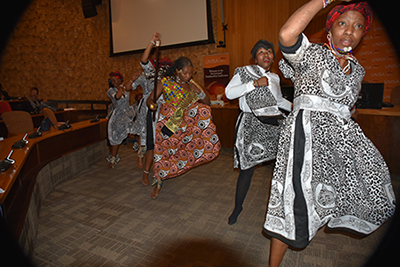
Sangoma Gogo Dineo Ndlazi (centre) opened the 2018 Decoloniality Conference. |
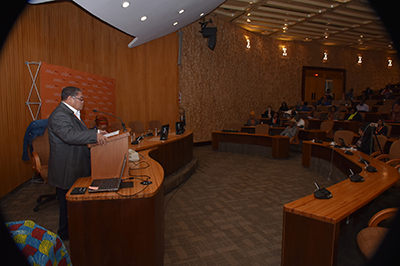
Prof Andrew Phillips (Dean: College of Human Sciences) welcomes delegates to the 2018 Decoloniality Conference. |

The renowned Professor Walter D Mignolo (Argentine semiotician, Duke University) was one of the keynote speakers of the 2018 Decoloniality Conference. |
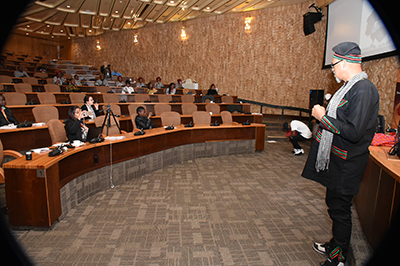
Another keynote speaker was Baba Buntu (lecturer, writer and activist-mentor) who presented at the 2018 Decoloniality Conference. |
Humanist agenda against the colonial agenda of death
This is a timely conversation, continued Dr Hlabangane, given the crises the country and continent face which has largely been shaped by Western modernity. “We have been criticising Western modernity. This conference goes beyond this and does something different which is to give life to Afrikan philosophies while it also explores where decolonisation and re-Africanisation come together. This is all done in service to a humanist agenda against the colonial agenda of death.”
Hlabangane said the conference went deep into decolonised knowledge. “By centering knowledges from Afrika, we buy space to breathe as we think from Afrika which we believe offers rich and deep philosophies that can give us tools of how to relate to other human beings, the animal and plant species and the spiritual world. It is important to re-think these relationships to undo the legacy of colonialism that damaged them.”
The philosophies and logic that inform Afrocentricity as opposed to Eurocentricity was one aspect that the conference explored. What are some of the tools of life found in our languages that can help us to bring to life Afrikan philosophies, was another theme explored.
Some of the other themes looked at how spiritual beliefs can help us forge better relations with each other; what does Ubuntu/botho mean to a person and how can it be translated to how we understand civilisation; who are the seers to whom we can turn in the quest to excavate Afrikan truths; Afrikan approaches to life; what can we learn from Credo Mutwa; are there lessons to learn from a decolonial readingg/interpretation of uNongqawuse; what do particular contexts teach us as we put de-colonisation in conversation with Afrikanisation; and where do we go and how do we get there beyond the stagnation of the social, political and economic discourse post 1994?
CHS Leading the way
This was the second international Decoloniality Conference hosted by the CHS. The College has been a leader in decolonial education, teaching and learning and community engagement long before movements such as #RhodesMustFall surfaced.
As the Head for graduate studies and research in the College, Professor Puleng Segalo explained, to decolonise is to confront, challenge and reject the status quo, and the College decoloniality project came about as a result of many of scholars feeling suffocated within the various spaces they occupy. As academics, students, and activists, they decided to ‘speak back’.
Conversations on decoloniality officially started in 2011 under the umbrella of the Africa Decolonial Research Network (ADERN) which consisted of scholars who were tired of the status quo within academic spaces. The Network organised readings groups, seminars and a visit to Barcelona where they attended a Summer School on Decoloniality. The network grew and the College initiated the first Summer School on Decoloniality in 2013. The aim was to create a space for scholars to engage with issues of epistemological violence within the academic sphere; a form of violence which ultimately bleeds into the broader society.
All the issues that have surfaced in the country in the past few years have also pointed to the need for engagement, confrontation, cost accounting, and responsibility taking. To this end, the decoloniality project in the College of Human Sciences aims at allowing an opportunity for the interrogation of what it means to be human from the subject that speaks, and engaging in uncomfortable conversations about what it would mean if we were to see each other as human and not falling into different categories of humanity.
“Decolonisation is not an arrival, but a historical ongoing process which engages imperialism and persistent colonial tendencies at multiple levels. We call for the acknowledgement of people’s agency, identity, language, history, and ethics, from their own vantage points. We call for the space to breathe,” says Professor Segalo.
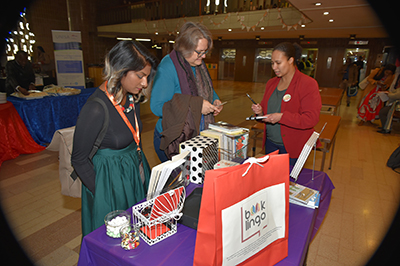 |
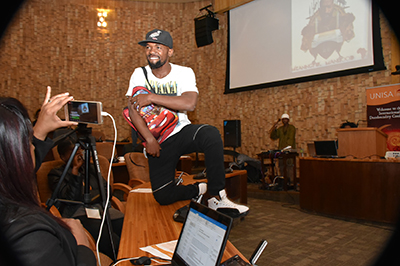 |
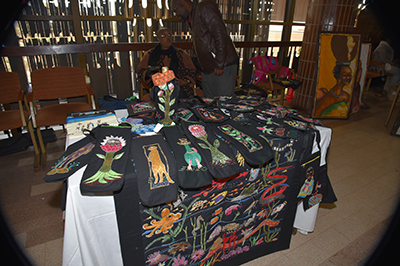 |
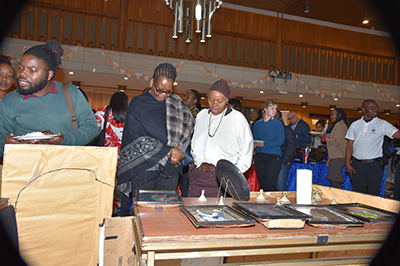 |
* Compiled by Rivonia Naidu-Hoffmeester (CHS communications and marketing)
Publish date: 2018/08/15

 Unisa co-hosts G20 community outreach in the Eastern Cape
Unisa co-hosts G20 community outreach in the Eastern Cape
 Unisans gain membership of prestigious science academies
Unisans gain membership of prestigious science academies
 Advocating for disability transformation through servant leadership
Advocating for disability transformation through servant leadership
 Unisa Press continues to illuminate the publishing space
Unisa Press continues to illuminate the publishing space